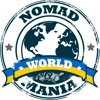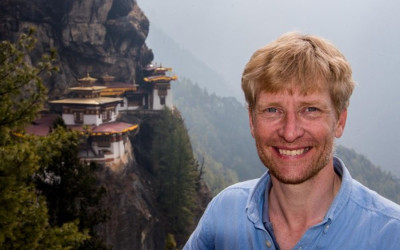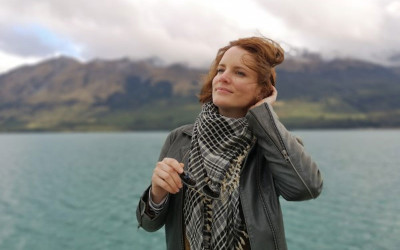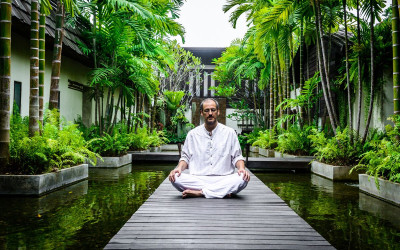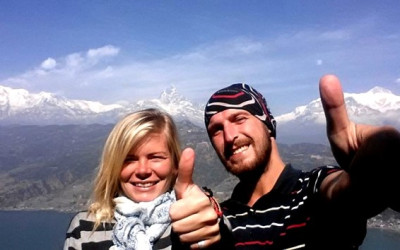Gianluca is the man behind Soviet Tours; he talks to us today about his travels and just why he is so fascinated with the Soviet world…
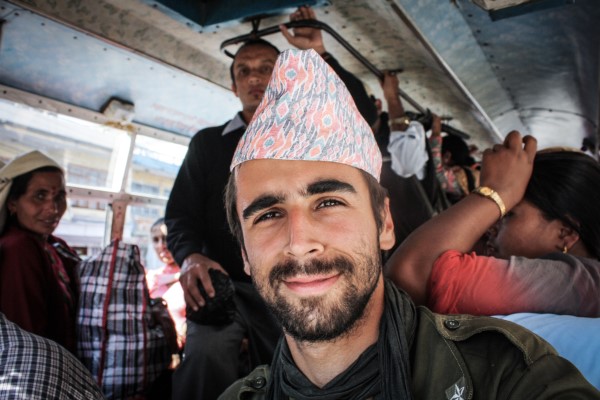
Pokhara, Nepal
Gianluca, tell us something about your early life and how your interest in travel began.
I was born and raised in Livorno, a sunny seaside town in Tuscany. After eternal childhood and teenage years gone by in the sweet languor of seemingly endless summers I moved north to study Slavic Languages in Berlin and Photojournalism in London. I spent the best time of my university years travelling and photographing around four continents and more than eighty countries.
During my journeys I fell hopelessly in love with the complex geopolitical and cultural heritage of a vanished land that used to be called Soviet Union. After many a trip to almost every corner of the former “Evil Empire” I am now loosely based between Berlin and the Caucasus, where I spend most of my time taking care of my clients at Soviet Tours or engaging in photographic, linguistic and gastronomic discoveries. When not in Germany, the Caucasus or Italy one can usually find me travelling around Africa, the Middle East and the former Easter Bloc, working both as a photo reporter and as tour leader for National Geographic Expeditions.
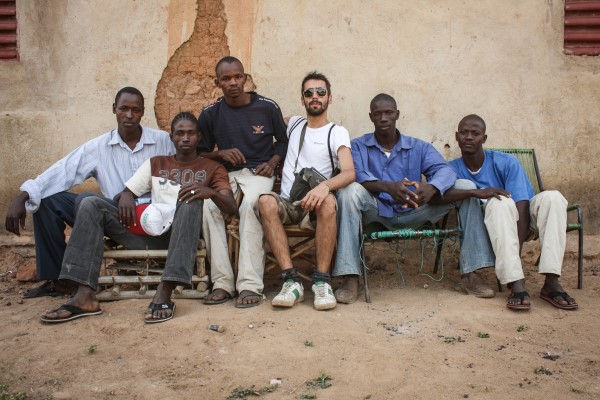
Bamako, Mali
You now live in Berlin. What are the pluses and minuses of being there and did you experience any culture shock at the start, as an Italian?
To live in Berlin implies many pluses and a few minuses. On top of the standard advantages given by residing in a major European capital (cultural events, a huge network of both local and foreign professional contacts living in the city, embassies and consulates just a few kilometres from my doorstep), Berlin adds also a unique laidback atmosphere and a convenient proximity to Russia and Eastern Europe.
Cultural shocks weren’t many as my wife is German and I speak German fluently (I even dream in German). Of course the food is a big issue here. Regardless of the fact that in Berlin one can find almost every cuisine of the world, Italian stuff in Italy (and I underline “in Italy”) tastes better than everything else. Also, the lack of a proper seaside is a major drawback. The Baltic is close and kind of romantic but it is not comparable to the Mediterranean coast where I grew up. Luckily I travel often around the world and regularly back to Italy, thus having my yearly doses of sea salt guaranteed.
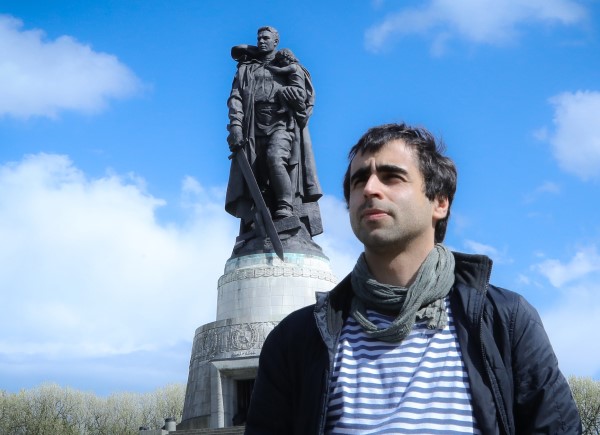
Berlin
You also have a fascination with the Soviet world. Why?
My fascination, or rather my profound and desperate love for the former USSR, is the very major cornerstone of my entire personal and professional life. It’s a very deep and complex relation, but long story short I can sum it up in a few phases: first I fell love with classical Russian literature when I was still a child (by the age of seven I was reading Chekhov), then came the geographical and cultural interest followed by an increasing amount of travelling to the area and an in-depth academic study of its ethnolinguistic dynamics, then came the photojournalism and the many reportages I made in the former USSR and eventually my own tour company, aptly named Soviet Tours.
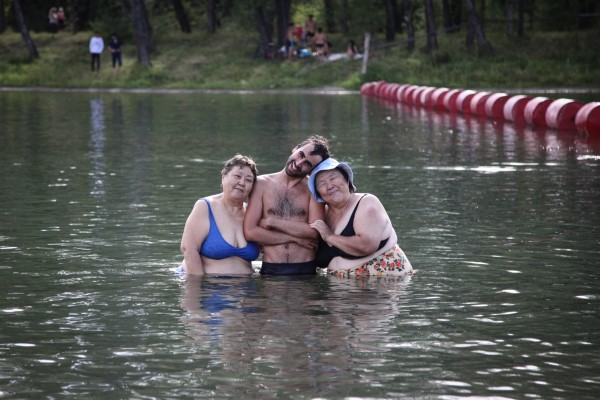
Abakan, Khakassia (Siberia)
What specific lesser known aspects of Soviet culture have you discovered which you feel should be known and shared?
It’s easy to fall into misleading stereotypes and trivial internet memes when speaking about the Soviet Union but there is an entire world of compelling variety to be discovered beyond the concrete walls of the former Iron Curtain. Two aspects that I always try to transmit both to my clients at Soviet Tours and to the readers of my reportages are the mesmerising ethnic, religious and cultural diversity of the former USSR and its precious (and sadly endangered) architectonic and artistic heritage.
So you are the founder of Soviet Tours. What are the challenges and benefits to you from running such an operation?
Speaking Russian fluently and having a huge network of trustworthy and reliable local contacts (the majority of whom I met in person during my early travel years) makes my life and work in the former USSR much easier than one could expect. Benefits are huge. Besides enjoying the obvious economic pluses (the company is doing quite well) I am also very lucky to have made a profession out of my passion, thus assuring that I will always be connected with the patch of Earth I love the most, the mighty (former) Soviet Union.
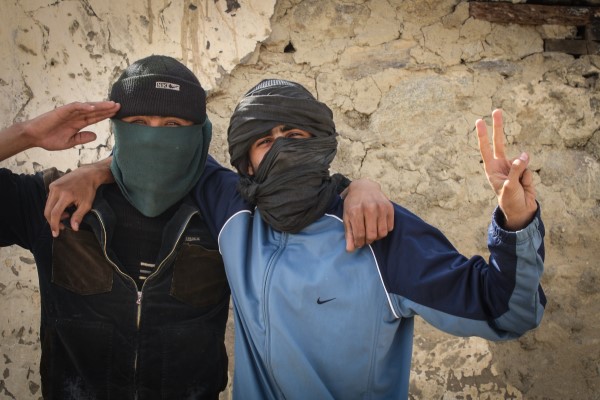
Bulun, Tajikistan
What are some of the off the beaten track places in the former Soviet Union to which you like to take travellers?
North Caucasus: the lesser known side of the greater Caucasus region, for its ethnic and religious diversity, delicious food, heart-warming hospitality and spectacular landscapes.
Southern Siberia: specifically the autonomous “ethnic” republics of Tuva, Altai, Buryatia and Khakassia, also for their peculiar cultural variety and breathtaking sceneries.
Unrecognised Countries: Abkhazia, Transnistria, Karabakh, South Ossetia, Donbass, for their unique time-capsule atmosphere and compelling geopolitical weirdness.
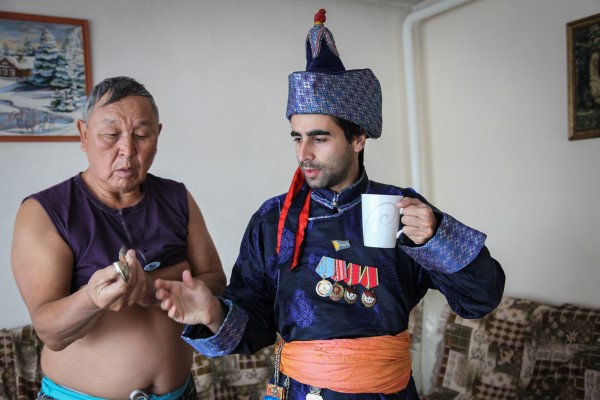
Kyzyl; Tuva (Siberia)
And of all the regions in the former Soviet Union you operate to, which is your own personal favourite and why?
The Caucasus, no matter which side of it. The reasons are endless and some of them are already mentioned above. If I had to choose three: people, culture and food.
You also offer tours to a selection of other places, like Former Yugoslavia, the Horn of Africa, the Middle East and North Korea. Why specifically these places?
Our company’s portfolio is focussed on off the beaten path destinations across and beyond the former USSR and I thought it would be interesting to include also some obscure destinations more or less related to the former Soviet Union. For some of them (Yugoslavia, North Korea) the connection with the biggest player in the former Eastern Bloc is pretty obvious, while others (Eritrea, Syria, Iraq) have been chosen for their isolation and the mysterious area that surrounds them. Las but not least, no matter whether Soviet or non-Soviet, the vast majority of destinations I offer on Soviet Tours is made by places I have travelled (often more than once) myself through, either as a reporter or as a casual visitor.
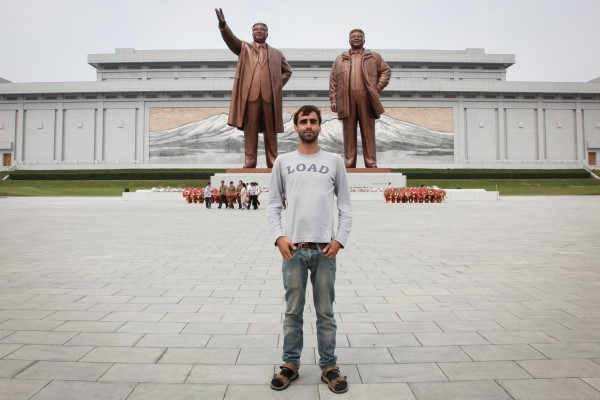
Pyongyang, North Korea
Which places of the world which you haven’t been to would you still like to discover and why?
Nigeria and Papua New Guinea. The first because it’s obscure, chaotic, hectic, overwhelming, fear-inducing but at the same time culturally fascinating and stereotype-defying. The latter because of its extreme remoteness and compelling tribal heritage.
So what are your travel plans for the first part of 2019?
Lots of Russia, Eastern Europe and Caucasus (with NatGeo) and some bits of Africa (on my own) like Algeria and Zimbabwe.
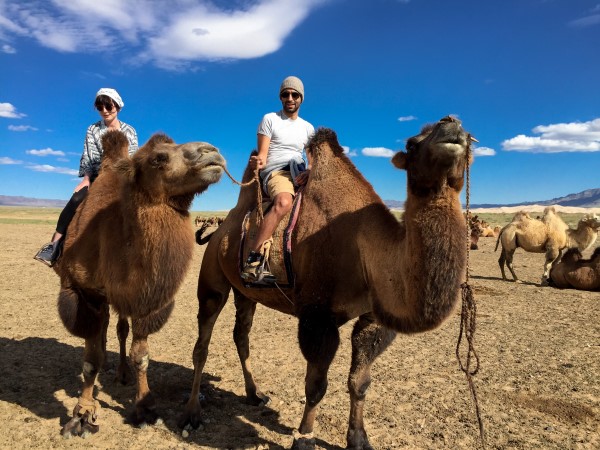
Gobi desert, Mongolia, with my wife
Finally, if you could invite any four people to dinner, from any period in history, who would you invite and why?
Vladimir Ilyich Ulyanov Lenin, to tell him he should plan things carefully before his death if he doesn’t want to see his geopolitical dream and creation crumbling a few decades after and to warn him to get rid asap of that egocentric friend of his named Stalin.
Adolf Hitler, to persuade him to keep it up with his painting career and never swap art for politics.
Prophet Muhammad, and ask him his opinion about women’s driving rights in Saudi Arabia.
Leo Henricus Arthur Baekeland, to let him know that his prestigious surname will one day be at the centre of a scandalous and incestuous criminal case and later also involved in one of the most creative travel scams of human history.
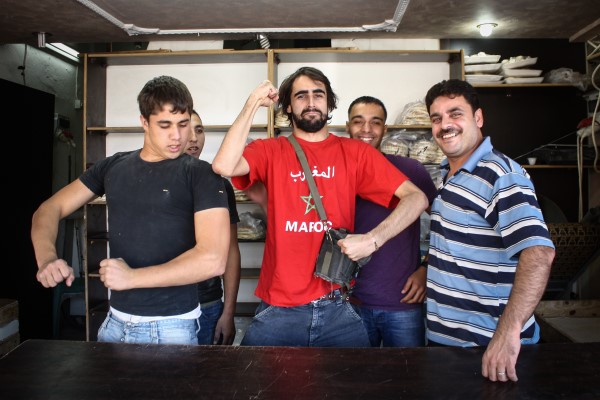
Jenin, Palestine
The photos in this interview are from Gianluca’s personal collection and we thank him for sharing his images with us here at NomadMania!
